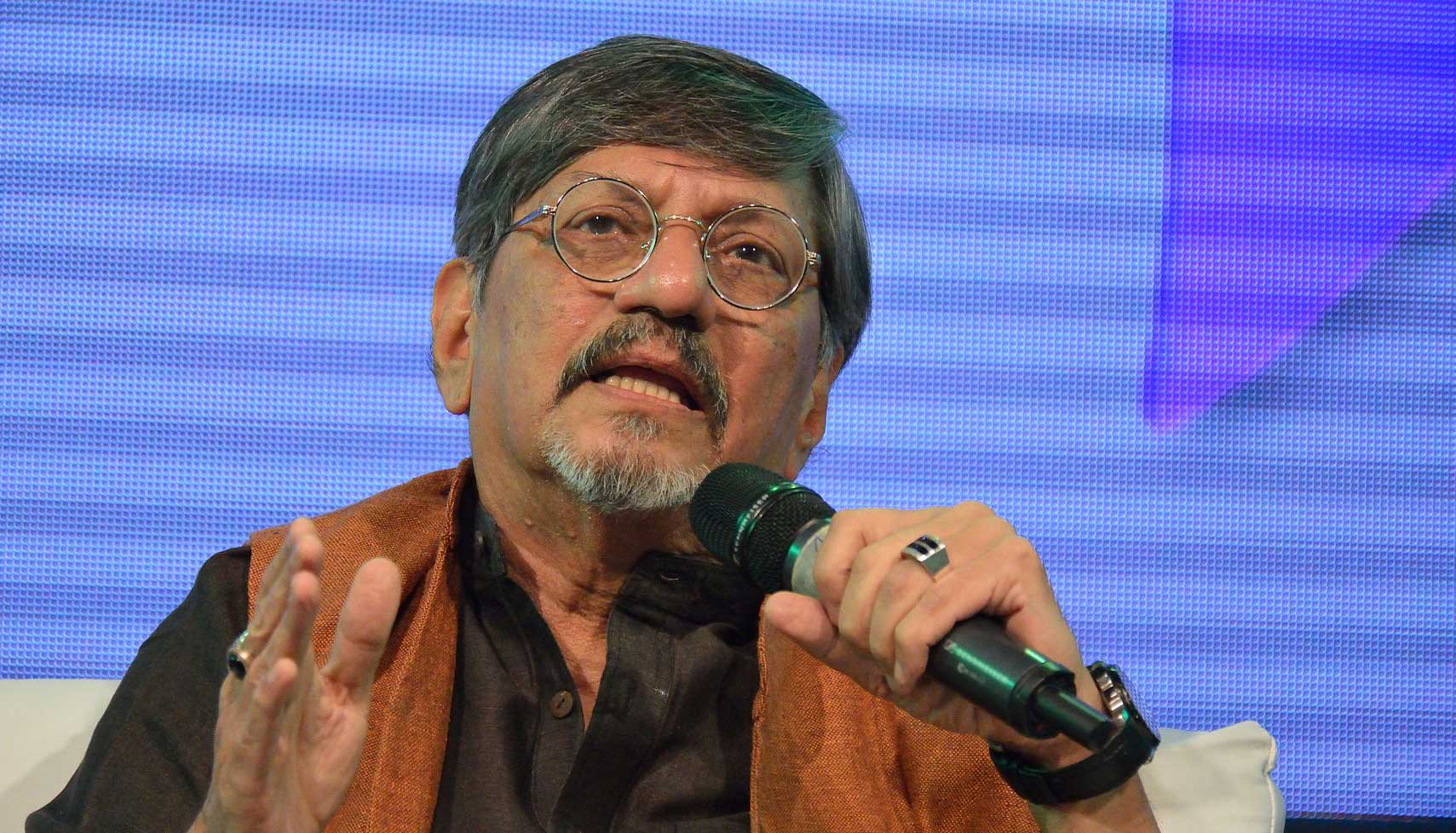Actor-director Amol Palekar has voiced fears that the “march towards autocratic functioning and governance” will take several leaps forward if the Narendra Modi-led government is voted back to power in the upcoming Lok Sabha elections.
“Attempts to make the ‘present’ blur, to mislead us in many respects, to gag us from all corners, to wage a war against the voice of dissent…. This is a march towards autocratic functioning and governance,” Palekar told The Telegraph on Monday.
Asked what he apprehended if the BJP returned to power, Palekar said: “Post-May 2019, the march will go many more steps ahead.”
Palekar, however, did not mention either Modi or the BJP by name during his interaction with this newspaper.
The actor, who redefined the boy next door image in middle-of-the-road films from the 1970s, had to cut short his speech on Friday at Mumbai’s National Gallery of Modern Art after he criticised the culture ministry’s functioning and mentioned the attacks on the freedom of expression.
Palekar, chief guest at the inauguration of an exhibition of the works of the late artiste Prabhakar Barwe, had voiced concern on two points.
He had described as “disastrous” the culture ministry’s decision to disband the advisory committees of local artists at the NGMA’s galleries in Mumbai and Bangalore and to assume control over these galleries.
The second was the NGMA’s decision to restrict the exhibition of artworks from outside its own collections to the dome area of the gallery.
NGMA officials had then intervened, asking Palekar to stick to the exhibition, prompting the actor to walk off the stage.
On Sunday evening, the culture ministry issued a statement clarifying the situation at the NGMA.
“The advisory committees have not been dissolved. Their terms ended recently. The committees are being reconstituted. The recommendations of previous advisory committees will be honoured and exhibitions held as proposed. The new advisory committee will take decisions on future exhibitions,” the statement said.
“Regarding permanent collections, it is clarified that NGMA proposes to display its own collections (including artworks by great masters) initially over a two-year period. Some artists have expressed their apprehensions about availability of less space for temporary exhibitions and retrospectives. NGMA is deliberating on suggestions received from artists and a final decision will be taken shortly in consultation with stakeholders.”
Reacting to the ministry’s statement, Palekar said: “I was only demanding a fair and transparent process of decision-making.”
Palekar said he still could not understand why his speech had riled the NGMA officials. “I was raising questions which were critical of certain government policies. What was inappropriate in that I failed to understand? I never anticipated any such gagging.”
The actor said he was not ready to call the situation an “undeclared emergency” but there were reasons for discomfort. “One such incident cannot really be stretched to saying that there is an undeclared emergency. But there is a certain pattern of muzzling voices, muzzling dissent. What is more disturbing is that more and more people are keeping quiet and not resisting or speaking out against something which is done behind doors by the government,” he said.
When told that the film fraternity he has been associated with for four decades had largely opted to remain silent, Palekar said it was saddening but expected.
“Bollywood seems to be happily lazing around their affluence, their glitter and the glamour. Nothing around them that is happening is disturbing them. But it has been the case…. We have always seen an individual member fighting for his or her own cause, others will not raise their hands in solidarity. When you expect a quid pro quo benefit from the system, you will never have the courage to speak out and resist,” Palekar said.


